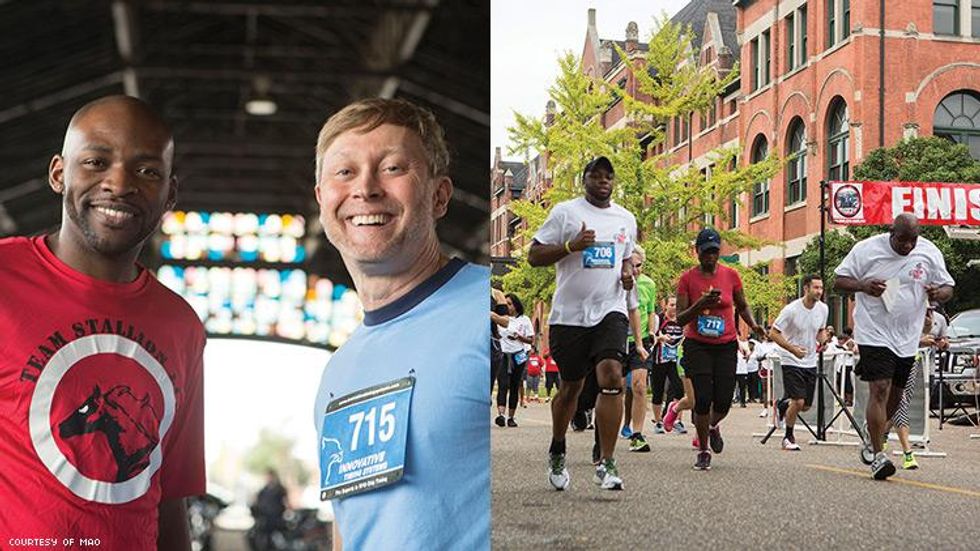Treatment
This Alabama HIV Organization Uses Southern Hospitality

For over three decades, this nonprofit has been fighting stigma and taking HIV services to rural Southerners who need it most.
July 18 2018 9:11 AM EST
By continuing to use our site, you agree to our Privacy Policy and Terms of Use.

For over three decades, this nonprofit has been fighting stigma and taking HIV services to rural Southerners who need it most.
If any organization understands the needs of rural Southerners — who represent one of the most underserved populations in the United States, particularly when it comes to people living with HIV — it’s Medical Advocacy and Outreach. It has diligently and humbly served poz people in rural Alabama for more than 30 years, and much like the epidemic it’s dedicated to combatting, the organization has undergone immense change since its beginnings.
First known as Montgomery AIDS Outreach, MAO made the conscious decision to officially drop AIDS from its name in honor of its 30th anniversary, and in response to changing needs. These days, people living with HIV are much less at risk of developing the opportunistic illnesses that define an AIDS diagnosis. Furthermore, stigma still reigns supreme in the South, and the outdated term — referenced now as stage 3 HIV — only fuels fear and dissuades people from seeking help at “AIDS” clinics.
Thomas Stephens, MAO’s media relations specialist, tells Plus the biggest barriers to providing services to rural clients “continue to be stigma, cost, and geography.”
“Removing the stigma of HIV [and] AIDS and other illnesses requires ongoing strategy changes while maintaining procedures that offer protection for those seeking information and care,” Stephens continues. “Even after more than 30 years of growing public knowledge, many patients coming to MAO maintain concerns stemming from a fear that a member of their church or community might see them. Phrases like ‘my church’ or ‘my community’ — that usually translate to feelings of support and hope for many — translate to fear for people living with HIV.” Especially in small towns, where everyone knows each other’s business, and ostracization can have life-altering ramifications, “public education needs to be loud and as frequent as resources permit.”
Fighting stigma wasn’t the only reason for MAO’s name change. “The new name reflects our expansion of quality services to new healthcare issues facing rural Alabama,” says Michael Murphree, MAO’s chief executive officer. In addition to its commitment to serving those living with HIV, MAO now routinely helps those impacted by hepatitis C, diabetes, and behavioral issues. They also offer preventive care like PrEP, and free rapid HIV and hep C testing, with results in just 20 minutes. MAO even recently added enhanced case management and transportation services, a mother and infant program, and a dental clinic. Despite the expansion, Murphree says the group is dedicated to “the same mission-driven quality care that MAO has always been known to provide.”

“Much of South Alabama, for example, represents the most rural of areas,” says Stephens, “requiring residents to cover vast distances to obtain routine care.”
MAO reaches its clients through its growing network of satellite clinics sprinkled throughout the most rural and off-the-grid communities in the state. These telemedicine clinics were branded as Alabama e-Health, allowing care to be delivered with less stigma than clinics with names derived from references to HIV or sexual health.
Thanks in part to a grant from AIDS United, MAO established the first Alabama e-Health telemedicine clinic in Selma in 2011. Its telemedicine network has since expanded to cover 12 counties throughout rural Alabama — and garnered the attention of the Obama administration as a viable and cost-effective means of reaching rural HIV-positive people. An Alabama governor even turned to MAO for advice on addressing health disparities in the state and nominated Murphree to the Alabama Health Care Improvement Task Force.
Murphree, who has advocated for policies to bolster rural healthcare capabilities at the White House on three separate occasions, sums up why the organization has been so successful in reaching this often ignored demographic: “The MAO team does not just see health conditions, we see human beings in need.”